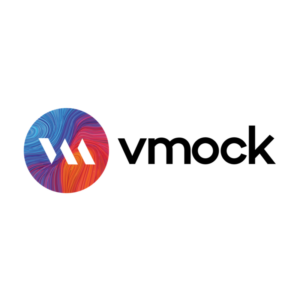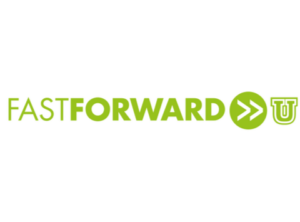Welcome to the Fall 2021 semester! This week’s Imagine Kickstart Kit is for students in graduate schools to help you get started with your life design journey for this semester. Maybe you have already launched your career or you are just at the start, here are some steps that you can take this Fall to enrich your grad school education experience, and potentially, kickstart your career.
Level Up Your Grad School Work
Finishing grad school advances your career possibilities but why wait for graduation to score a couple more points on your resume?
As you’re going through classes, you will have a lot of written assignments: midterm and final papers, research reports, thesis chapters, etc. Use this work to showcase your talent while you’re in grad school. Here are some tips on how to use your coursework to help your career:
- Talk to a professor about your research
- Find people who can immediately benefit from your work
- Reach out to alumni who work in the area of your study and show them your work
- Get published by your grad school or an academic journal
- Store your best work to show as a writing sample for the future job application
These tips and more are discussed in this article on Imagine: How to Build Professional Development into your Grad School Coursework
Finding people to share your work with might seem like a hard task. We suggest you start with JHU services like Handshake and OneHop that will help you connect with fellow students or JHU alumni. People on these resources are happy to connect with you to discuss your work, help you with some career tips or share their experience. OneHop specifically is designed to help students form lasting mentoring relationships, and if you don’t know how to start, sharing your classroom work with others can be a great first step.
Finally, being a student at Hopkins, you get access to all resources for students. Use your access to databases like JSTOR or EBSCO for your own research outside of classes. Plus, knowledge and experience with these databases themselves can be beneficial for some jobs.
Prepare for a Recruiting Season
To win in the game of recruitment, you are going to need to start with preparation, and that stage can be completed during your studies. Start with exploring your career possibilities and where your potential degree, specialization or coursework can be in demand. Each Hopkins school has a career center that can help you find what is of interest to you, how these skills can be useful on a job market and share some knowledge about advancing your career. If you are studying on Homewood campus, we suggest you start by connecting with the Life Design Lab and your Life Design Educators, and if your studies are in a different campus, check out Career Centers for your school, a full list is available on the Life Design Lab page or in the bottom of every Imagine page.
Also, check out Vault Guides here on Imagine or on Vault Guides website. These guides provide you with information on how does it feel to work within an industry or a specific company, and how to position yourself better to start, advance or change your career.

The next step is to start creating your image for a potential employer. There are several essential elements for a good job application: resume/CV, cover letter, letters of recommendation and writing samples.
There are multiple resources available across Johns Hopkins to help you prepare the best resume that will attract recruiters’ attention. You can start here on Imagine with Sample Resume guidelines and then dig deeper to Enhance Resume Bullets. The School of Engineering also has The Master Class recorded by Mark Savage, the Life Design Educator at JHU, which is the perfect all-in-one guide to the basics of job search with useful guidelines for resumes, cover letters and interview tips. Although the guide was prepared for Engineering students, it can be useful to professionals in any sphere, and can be especially useful for International students since a part of workshop
Finally, make sure to run a fresh copy of your resume through VMock, a JHU-approved AI resource, that will show you how to perfect your resume and make it stand out. Simply log in with your JHU credentials and upload your resume to make it perfect.

Getting letters of recommendation can be daunting, luckily, a grad school is a perfect opportunity to get these letters with ease. If you have a person, who would be a great recommender for you: perhaps, a professor or your manager during an internship – check out our post on how to smooth out this process: Asking for Letters of Recommendation.
If you are aiming at a career in a consulting firm, visit CaseCoach while you are preparing. It’s a JHU-approved platform to help you prepare for interviews and case studies for major consulting firms that will help get you even more prepared for a recruitment season.
Finally, a last crucial step to ensure your career development is networking. Start with a Guide to Networking, and then visit a Talk to Them page on Imagine that is mostly dedicated to networking and mentoring. For example, check out these articles:
Get an Internship or an On-Campus Job
If you’re in grad school, chances are high that your classes are in the evening. While it is crucial to spend enough time studying outside of the classroom to excel in your studies, you might want to get a part-time internship or a job on-campus. Both are great ways to help you put a cherry on top of your education cake, it shows that you’re able to apply the knowledge you get in the classroom and will help you understand your career path a little better. Perhaps, you might even decide to reconsider your whole career during an internship! For some inspiration, read how Rubi Ramirez decided to change her career choice during a summer job.
Check what internships are available to you to Handshake and on-campus jobs for JHU students are available on SMILE – a University Experiential Learning platform for paid internships, on-campus jobs and even research opportunities.
Connect with a Mentor
One of the goals of Imagine and Life Design Lab is to help students to graduate with at least one long-lasting mentoring relationship. Luckily, JHU alumni tend to keep their connection with their alma mater, and one of the ways they stay connected is by providing mentoring advice to the younger generation. To help you connect with alumni, Johns Hopkins maintains the OneHop platform. The OneHop engine will help you connect with a mentor in your sphere of interest, and Imagine will help you with some useful advice like 5 steps to find the right mentor for you or How to prepare for your mentor meeting.
Become a Mentor Yourself
However, if you are a grad school student, there is a fair chance that you already have something to share with the world. First, create your account on OneHop, especially if you’re a JHU undergraduate program alumnus yourself. There are many undergraduate students, who are eager to hear, for example, how to get started with a grad application (you know by now that it can be a tedious process.)
Besides, grad students are welcome to participate in undergraduate student research projects as mentors. For instance, PURA – a prestigious Hopkins award for undergrad research, is looking for mentors for participants among grad students too. Learn how to serve as a mentor for student research on Imagine.
Mentoring a student, who is participating in an award contest can be a great way for you to spice up your graduate studies, and, of course, will look great on resumes for positions that require teamwork skills.
Think Outside the Box
Academia is the place that lets your worldview and vision expand. It is a long-standing tradition for universities around the world to encourage their patrons to think and dream bigger. And maybe your business partner is sitting right next to you in the classroom like in the story of Cameron Owen (MS in Health Care Management ’18) and Pratik Pradhan (MS in Health Care Management ’18), who launched their business after meeting in a class at JHU.

As the world economy recovers from the COVID-19 induced crisis, it might be a great opportunity for you to turn your next great idea into a full-scale enterprise. Maybe you already have an idea, or maybe you get one during your studies, there are many resources and guidelines that can help launch, fund and promote a new business. Start with this article on Imagine: Starting a Business? Check this out! and then learn more about Johns Hopkins Technology Ventures and FastForward U – a Hopkins hub for student entrepreneurs and innovators that supported over 120 student startups and distributed over $230,000 to different projects. FastForward U can also provide you with some space in their coworking in Baltimore to help you concentrate or meet some fellow entrepreneurs.
Do you have any questions?
Any Hopkins student can get support from the school, and one of the ways to reach out with some questions is to connect with Integrative Life and Learn Design (ILLD). If you have any questions, concerns or even advice, feel free to reach out to us at ILLD@jhu.edu.

